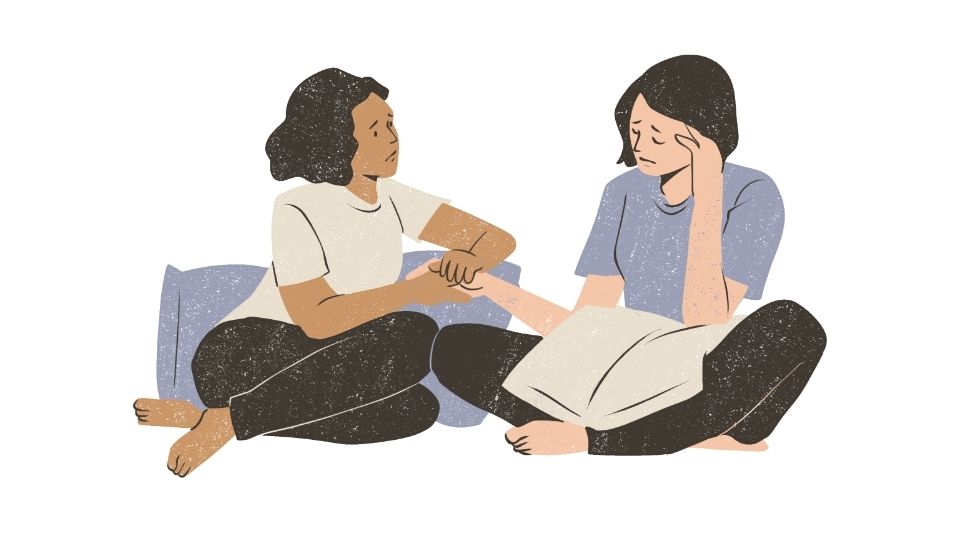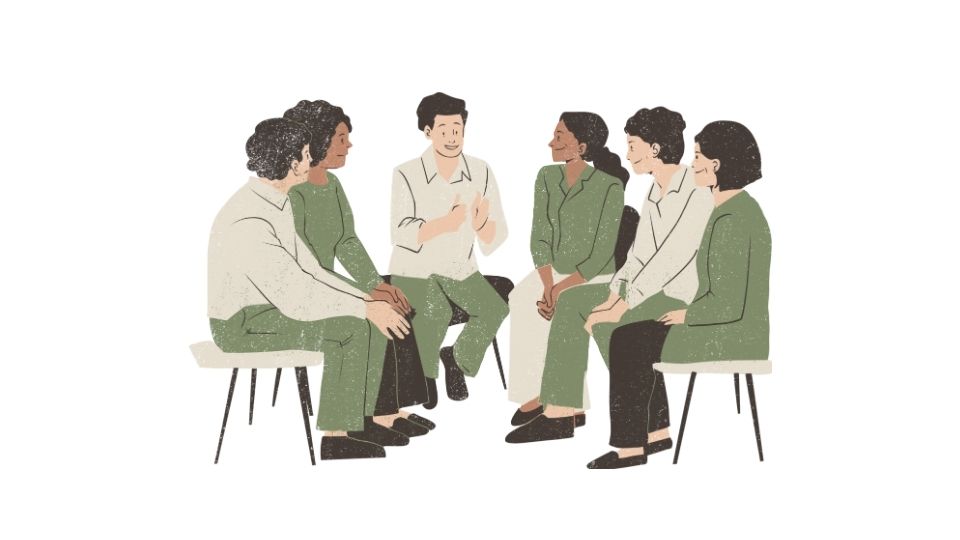Why Am I So Quiet Around People?

Why am I so quiet? This is a question that crosses the mind of many people – whether they’re sitting silently in a meeting while everyone else chimes in, or finding themselves the quiet one at a social gathering.
Being quiet isn’t necessarily a problem that needs fixing. But understanding why you tend toward silence can help you figure out if it’s serving you well or holding you back.
Let’s dive into the reasons people go quiet, and figure out if your silence is golden or if it might be time to speak up a bit more.
Why You Might Be So Quiet
There’s no single reason people tend toward quietness. Your silence might stem from your natural personality, social anxiety, past experiences, or even just what you’re comfortable with.
Personality and Introversion

Ever heard someone say “she’s just naturally quiet”? That’s often referring to introversion – a personality trait where you gain energy from alone time rather than social interaction.
If you’re an introvert, your quietness isn’t a flaw – it’s a feature of how your brain is wired. Introverts typically:
- Process information internally before speaking
- Prefer deep, meaningful conversations over small talk
- Need alone time to recharge after socializing
About 30-50% of the population has introverted tendencies, according to research from the Myers-Briggs organization.
Your quiet nature might simply be how you’re built. And that’s perfectly okay!
Social Anxiety and Fear of Judgement
Let’s be real – sometimes we’re quiet because we’re afraid of saying the wrong thing.
Social anxiety affects about 7% of Americans, but almost everyone experiences milder forms of this fear at some point. You might stay quiet because:
- You worry people will judge what you say
- You’ve been criticized for speaking up in the past
- You’re afraid of sounding stupid or uninformed
- You replay conversations in your head afterward, cringing at what you said
This kind of quietness comes from a place of fear rather than preference, and it can hold you back from connecting with others.
The Outsider Effect

Ever feel like everyone else in the room somehow got a handbook you missed?
Sometimes we’re quiet because we feel like we don’t belong. This might happen when:
- You’re the new person in an established group
- The conversation revolves around topics you’re unfamiliar with
- There are inside jokes or references you don’t understand
- Cultural or background differences make you feel out of place
According to research published in the Journal of Social and Personal Relationships, feeling like an outsider can significantly reduce how much people contribute to conversations.
Depression and Low Energy
Sometimes quietness can be a sign of something deeper going on. Depression and other mental health challenges can drain your energy and motivation to engage socially.
Signs that your quietness might be related to depression include:
- Losing interest in conversations you used to enjoy
- Feeling too tired to engage, even when you want to
- Finding it hard to concentrate on what others are saying
- Feeling disconnected or “numb” during social interactions
If your quietness is accompanied by persistent sadness, sleep changes, or loss of pleasure in activities, it might be worth speaking with a mental health professional.
The Comfortable Silence Club
Not all quietness comes from a negative place. Some people are quiet because they’re comfortable with silence and don’t feel the need to fill every gap in conversation.
You might be naturally quiet because:
- You value listening more than speaking
- You were raised in a culture or family that appreciates silence
- You prefer to speak only when you have something meaningful to contribute
- You’ve learned that thoughtful silence is powerful
As research in cross-cultural communication shows, many cultures around the world place high value on silence as a form of wisdom and respect.
Is Your Quietness Helping or Hurting?

Being quiet isn’t inherently good or bad – what matters is whether it’s serving you well or holding you back.
When Quietness Serves You Well
Your quietness is probably working for you when:
- You’re quiet by choice, not fear
- You speak up when something matters to you
- People respect your words because you choose them carefully
- You feel content with your level of social connection
- Your silence feels peaceful rather than tense
When Quietness Might Be Holding You Back
Your quietness might be worth addressing when:
- You regularly leave conversations wishing you’d spoken up
- Your ideas go unheard at work or school
- You feel isolated or disconnected from others
- Being quiet makes you feel anxious or frustrated
- You stay silent even when something matters deeply to you
Practical Steps to Understand and Manage Your Quietness

Whether you want to embrace your quiet nature or speak up more, here are some strategies to help:
1. Get Curious About Your Silence
Next time you notice yourself being quiet, ask:
- What am I feeling right now?
- Am I choosing to be quiet, or is fear keeping me silent?
- What would I say if I felt completely safe to speak?
- Is there a pattern to when I go quiet?
This self-awareness can help you distinguish between intentional silence and reactive withdrawal.
2. Start Small If You Want to Speak More
If you want to speak up more, don’t feel pressure to transform into a chatterbox overnight.
- Prepare one comment or question before social events
- Practice with trusted friends first
- Set a goal to make one contribution in meetings
- Use text, email, or social media to express yourself if verbal communication feels too challenging
3. Find Your People
Sometimes we’re quiet because we haven’t found our tribe yet. According to research from the University of Kansas, it takes about 50 hours of interaction to move from acquaintance to casual friend.
- Seek out people with shared interests
- Join groups focused on activities rather than just socializing
- Consider that other quiet people might be waiting for someone to approach them
- Remember that finding your social fit takes time
4. Embrace the Power of Thoughtful Silence
If you’re naturally quiet and comfortable with it, embrace the strengths this brings:
- You’re probably an excellent observer
- Your words likely carry weight when you do speak
- You may notice things others miss
- You likely think before you speak (a rare quality!)
5. Seek Help If Needed
If your quietness stems from depression, trauma, or debilitating anxiety, professional support can make a world of difference.
- Talk therapy can help address social anxiety
- Support groups connect you with others who understand
- Sometimes medication can help manage underlying conditions
- Mental health resources are more accessible than ever
The Bottom Line
Being quiet is part of who you are – whether it’s your natural temperament, a response to your environment, or a mixture of both.
The goal isn’t to become louder, but to find a balance where your level of social engagement feels authentic and satisfying. Some of history’s most impactful people were known for their thoughtful quietness – from Abraham Lincoln to Rosa Parks.
Whether you choose to embrace your quiet nature or push yourself to speak up more in certain situations, remember that your voice matters – even if you use it sparingly.

